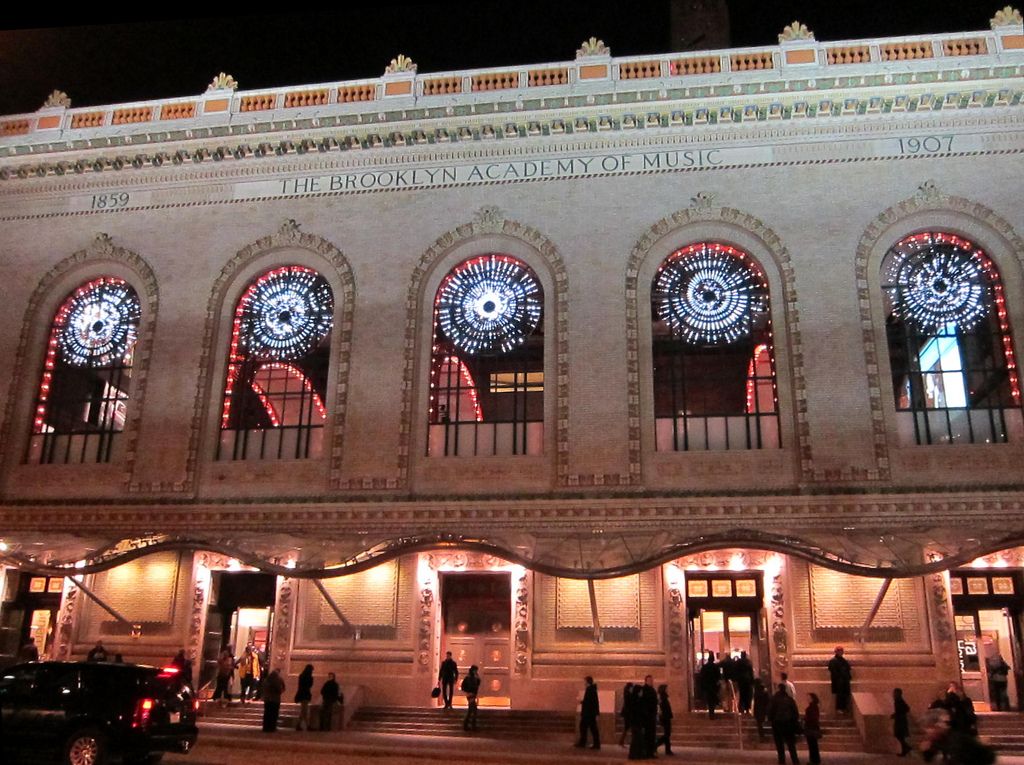New Plan Aims To Move Brooklyn’s Culture Forward By Retaining Its Artistic Character


A new plan lays out a vision of how to keep Downtown Brooklyn’s place as an artistic hotbed amidst the massive change currently enveloping the area.
Culture Forward, a new plan released by the Downtown Brooklyn Partnership and the Downtown Brooklyn Arts Alliance after consultation with over 100 community stakeholders, lays out 13 specific points on how to maintain and improve Brooklyn’s status as a hub of the arts by focusing on zoning and development initiatives to attract and retain various elements of the artistic community.
“Culture Forward is an innovative blueprint for the City of New York and community stakeholders to reinvest in longtime arts supporters by providing affordable artist studios, particularly in neighborhoods like Fort Greene that are undergoing rapid gentrification,” said Council Member Laurie Cumbo, who is a member of the Committee on Cultural Affairs.

Among the proposed changes would be alterations to land-use policy which would promote the development of more cultural spaces. One idea in Culture Forward is to have the city “explore” using underutilized spaces as potential studios, including 31 Lafayette Avenue (between St. Felix Street and Ashland Place). Additionally, another proposition series of affordable housing seminars aimed at encouraging creatives to apply for said housing would induce them to live in the neighborhood.
Finally, Culture Forward envisions a contest to design a “series of artistic markers” signaling cultural focal points in the area.
“By encouraging the development of live/work space and housing for artists while activating our public spaces to better showcase our artistic Brooklynites, Culture Forward will help this borough become a more affordable, attractive destination for talented men and women from around the world who want to achieve their vision,” said Brooklyn Borough President Eric Adams.
The full list of the proposed 13 initiatives are each titled as follows:
- Developing affordable artist workspaces to ensure artists can work and produce locally
- Ensuring artists have access to affordable housing
- Offering holistic support to ensure artists can succeed fully within the area
- Building the future arts leaders of tomorrow through cultural fellowships
- Building a framework for inter-board sharing and learning
- Developing a comprehensive plan to infuse the area with public art
- Staging regular performances within public spaces
- Cultivating broad, ongoing, engaged participation and collaboration through the creation of an area festival
- Ensuring media access and visibility for cultural organizations and activities in the area
- Enhancing digital capabilities
- Creating and curating linkages between neighborhoods and destinations
- Building capacity for the Downtown Brooklyn Arts Alliance
- Creating and fundraising for a Downtown Brooklyn cultural investment fund
Rapid construction particularly concentrated in and near the Barclays Center, is changing the fabric of Downtown Brooklyn and Fort Greene, but many of the new developments contemplate the existing artistic infrastructure.
As the Times reports:
An anchor of the area, the BAM Fisher, a 250-seat theater on Ashland Place, completed in 2012, will soon be joined by BAM Strong, a new arts complex with permanent exhibition space. (It will connect the BAM Harvey Theater (at 651 Fulton Street) with a vacant site (653 Fulton Street) and the ground floor of a high-rise condominium at 230 Ashland Place.
A striking new building under construction at 300 Ashland — designed by Enrique Norten and developed by Two Trees — will feature 50,000 square feet of cultural space (as well as close to 400 apartments, 20 percent of which are to be designated as affordable).
The tower is to include the Museum of Contemporary African Diasporan Arts, known as MoCADA; 651 Arts; a new branch of the Brooklyn Public Library; and the BAM Karen, named after Ms. Hopkins, which will have three screens for BAM Cinemas and the academy’s archive.
The Center for Fiction’s new home, in a 10-story building at 280 Ashland developed by Jonathan Rose, will also include more studios for Mark Morris and house the first Brooklyn location for the chef Tom Colicchio’s sandwich shop chain, ’wichcraft.
The Ashland, developed by David L. Picket at 250 Ashland, will have 8,000 square feet of cultural space (as well as a food hall in its base), including rehearsal studios for Theater for a New Audience.
“We don’t want it to feel like Anywhere U.S.A.,” former Brooklyn Academy of Music (B.A.M.) President Karen Brooks Hopkins told the New York Times, before adding, “we want it to be chaotic.”
[poll id=”22”]




